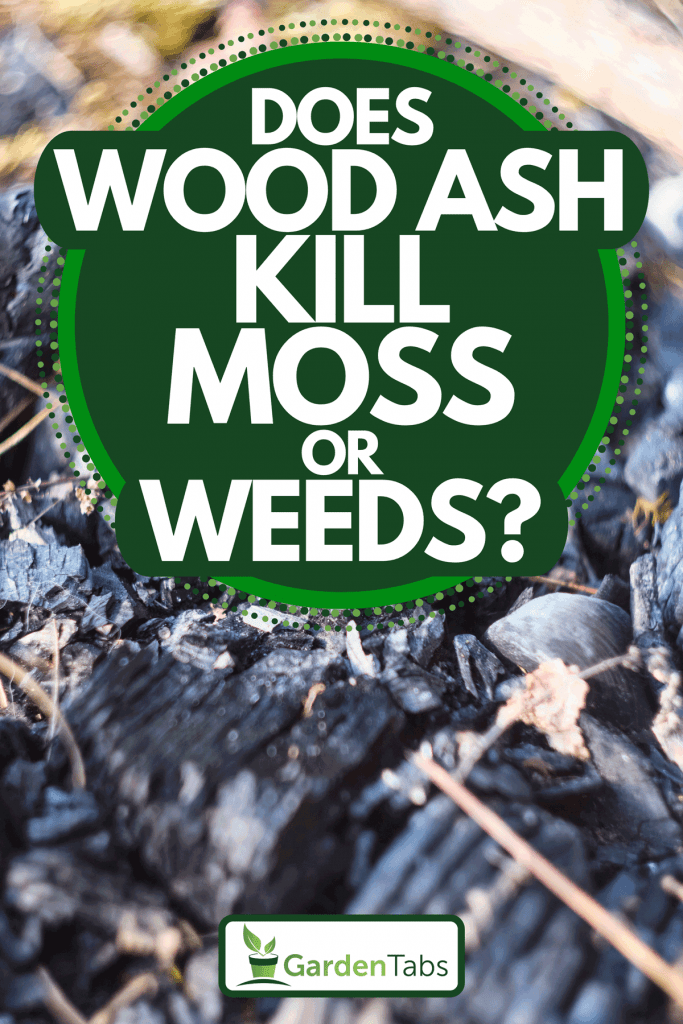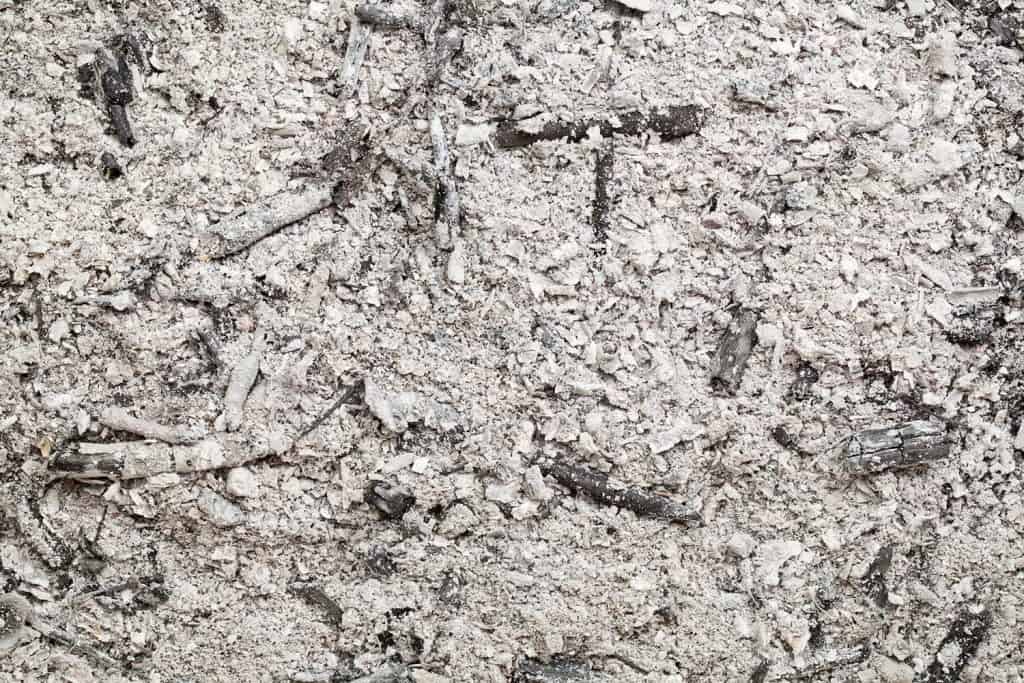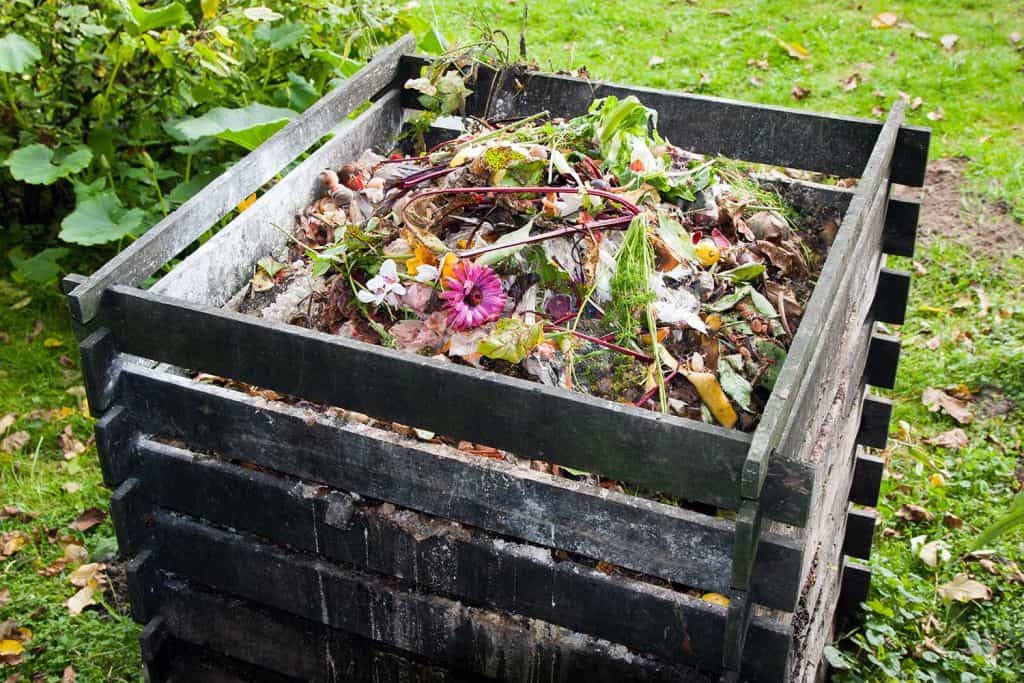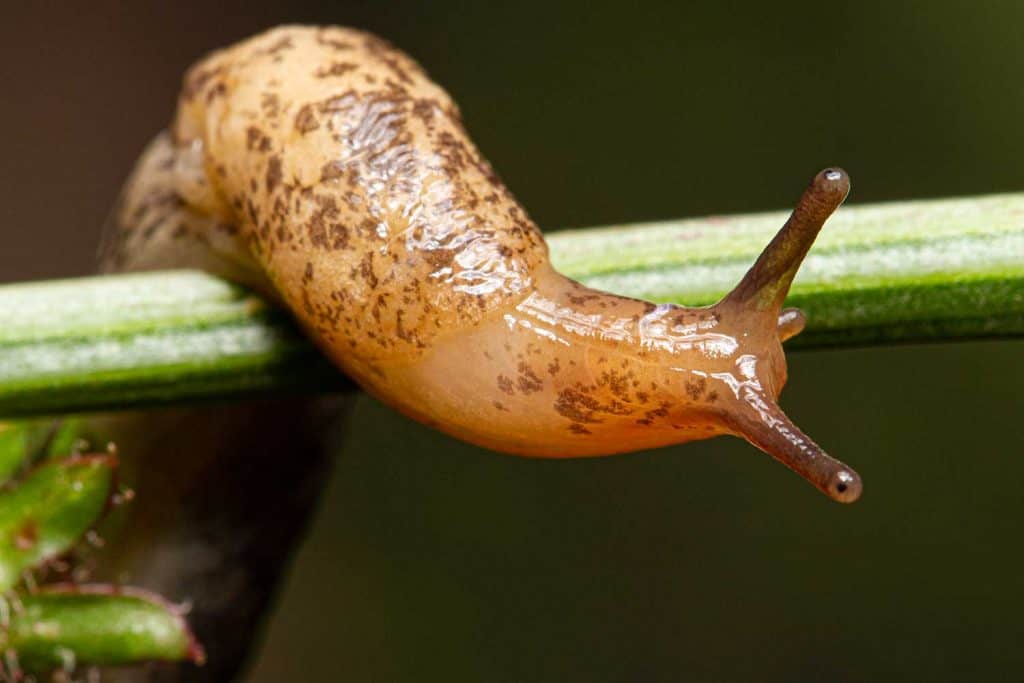Wood ash is produced in large quantities by wood heating stoves and outdoor wood fires. Usually, the ash is considered a waste product and dealt with accordingly. However, you have heard that wood ash can kill moss or weeds and wonder if that is true. In this post, we gather up-to-date information not only to answer your question but highlight other gardening uses for wood ash.
If applied properly, wood ash does kill moss and most weeds. This herbicidal property stems from the relative alkalinity of wood ash.
Keep reading the rest of this post for details on how to use wood ash to kill weeds and moss, as well as more information on the above bullet points. This post will turn your waste wood ash into a useful gardening tool.

Killing Moss and Weeds with Wood Ash
Wood ash is a base (also known as alkaline) and has a pH of around 9 to 11, depending on the parent wood species. This means that applying wood ash to the ground will make the soil more basic. Most weeds and moss prefer more neutral or acidic soil.

For instance, moss usually prefers soil with a pH of 5.0 to 5.5. This is relatively acidic as far as most yard soils go. Applying wood ash to a mossy area will cause the pH to rise and make the soil less appropriate for moss. In the same sense, by applying enough wood ash to a weedy area, the pH will eventually rise to a higher level than the weeds can bear.
However, it is difficult to know what pH weeds prefer, so effective weed control with wood ash may require significant ash. While this quantity is no problem for someone who burns for heat or has frequent outdoor fires, the increased pH is relatively permanent. This means that applying too much wood ash runs the risk of making the soil pH too basic for desired plants.
How to Apply Wood Ash as a Herbicide
Sprinkle or spread the wood ash on top of the ground and water in. For a faster change in soil pH, dig the ash into the ground by turning or tilling it under. Natural forces will shift the pH back towards neutral over time so that periodic reapplications may be necessary. Try not to apply wood ash to soils with a pH over 7 if you want other plants to grow in the area later.
Does wood ash kill poison ivy?
Wood ash can be used to kill poison ivy, but do not expect fast results. Poison ivy has a deep root system so is tolerant to extensive changes in soil pH. However, if you apply enough wood ash over multiple years, you can probably eradicate poison ivy and other plants from a certain area.
Soil Amendment
There are two main properties of wood ash that make it a helpful soil amendment/fertilizer. The first is its alkaline nature, as mentioned above. The second involves the many macronutrients and micronutrients found in wood ash.
pH Adjuster
Generally, any garden or lawn with a pH of less than 7 is appropriate for wood ash application. To put this in context, wood ash has a similar pH to lime (a common garden and yard amendment). To determine if you need to adjust the pH of your garden or lawn, conduct a pH soil test.
Click here for a multiple-use at-home pH tester from Amazon.
These tests can either be conducted at home, or you can send your soil off to a local extension office for testing. The at-home tests come in electronic and chemical versions and are very easy to use. If you anticipate the need for more than a few tests, consider purchasing the reusable electronic soil pH testers.
Simply understanding the pH of your soil is not quite enough information. You also need to understand the preferred pH of whatever plants you are trying to grow. For instance, blueberries and pine trees prefer more acidic soil, so they are likely inappropriate for wood ash. On the other hand, apple trees, cauliflower, and onions are likely to benefit from wood ash application.
Can you spread wood ash on the lawn?
Yes, most lawns are relatively acidic, so you can use a bit of wood ash to bring the pH up. Wood ash will function to help kill moss and encourage grass growth through the addition of more nutrients. Only apply if the pH of your lawn is less than 7.
Nutrient Fertilizer
In addition to amending soil pH, wood ash can also be used to add phosphorus, potassium, and micronutrients to your garden. If wood ash were to be marketed like most fertilizers, it would have a 0-1-3 fertilizer rating.
The above numbers equate to the macronutrients of phosphorus (the 1) and potassium (the 3). In addition, wood ash has significant amounts of the micronutrient calcium, which is critical for flowering and fruiting garden plants like tomatoes and peppers. Also, wood ash has magnesium, aluminum, and sodium.

The exact makeup of wood ash depends on the wood it is created from. However, the organic nature of this fertilizer and the light amount of nutrients it provides mean that the danger of over-fertilizing and damaging your plants is very low. In short, applying wood ash to a garden or landscape is likely an excellent way to not only get more use out of your fire but to improve your plants' health.
To repeat, do not apply wood ash to a garden if it tests to be very basic or over a pH of 7. The additional nutrients will be locked out of the soil because of the change in pH, and your plants are likely to struggle or even die.
Is wood ash good for vegetable gardens?
As stated above, yes. Wood ash adds important macro and micronutrients to your veggie garden and helps control the pH. Not all plants require the same growing conditions, though. So be sure to only add wood ash to the garden areas where a higher pH is appropriate.
Is wood ash good for tomatoes?
Yes. Wood ash is particularly good for tomatoes because of the high calcium content. Calcium is a major micronutrient required for tomato bud and fruit growth. Notice that most tomatoes specific fertilizers come with that high calcium content.
Compost Amendment
In the same way that wood ash adds fertilizer and pH balance to your garden, it can also help out that garden partner - compost. Adding modest amounts of wood ash will impact important nutrients to help the compost microbiome thrive.

Be careful; adding too much wood ash to your compost will oversaturate the compost with ash. This occurs because the wood ash will make the pH too basic, and if your compost is all wood ash, the microbiome will not have enough diversity to function properly.
Pest Repellant
Wood ash is distasteful to rodents such as mice, moles, and voles. To use wood ash to combat these pests, fill their holes or homes with the ash. Wood ash, unlike many other common repellants, is all-natural and organic. This means that many applications of the material are usually required for results.
Similarly, wood ash can be used to combat ants, cockroaches, and earwigs. Spread the ash on the ant nest, hole, or hill, or put the ash in areas where you notice cockroaches or earwigs entering your home or garden. The wood ash is abrasive to the bodies of these insects so that it will deter their activity after multiple applications.

The final pest that wood ash can help combats are snails and slugs. It is reported that making a ring of wood ash around plants with stop snails and slugs attack. However, once the ash gets wet, it will no longer function as a repellant, so it will need to be refreshed after rain or watering.
Storage Medium
Wood ash can be used to store garden vegetables that are prone to rotting. Ash that has been stored in a relatively sterile environment should not have any bacteria or fungal spores. Further, well-burned ash is usually very fine so that it will stop air and moisture movement.
To take advantage of these properties, begin by lining the bottom of a container with ash. Now place your tomatoes or peppers on this layer, so they do not touch. Now, poor more ash between and around the veggies. Continue this process until the container, such as a bucket, is full. The veggies will still change internally, so keep an eye on your stores so you can be sure to use them before they spoil.
In Closing
In this post, we answered whether or not wood ash will kill weeds and moss. In addition, we expand on the many uses for wood ash in a common gardening and landscaping system. We also answer some specific questions regarding wood ash applications for lawns and tomatoes. Good luck!

